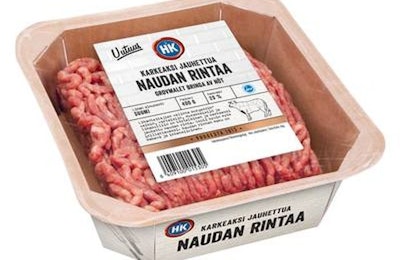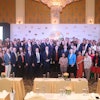
As a result of improved performance in all market areas, HKScan is reporting its best quarter’s profit for five years. However, significant challenges face the Finland-based meat company and others in this sector.
Considering the challenges — the coronavirus (COVID-19) pandemic and the emergence of African swine fever in Germany — HKScan CEO Tero Hemmilä expressed his satisfaction at the group’s performance over the latest quarter. Nevertheless, he described overall profitability as at an “insufficient level.”
According to the firm’s results for the third quarter (July-September 2020) just published, Earnings Before Interest and Taxes (EBIT) increased by EUR3.2 million (US$3.8 million) year-on-year to EUR7.7 million.
Despite all market areas — Finland, Sweden, Denmark, and the Baltic countries — registering positive developments in this measure, total sales for the period were down slightly at EUR438.3 million. Cash flow from operations was reported at EUR2.8 million. For the comparable period of 2019, this was EUR8.7 million, a difference that Hemmilä attributed to a temporary increase in stocks.
For the January-September period, the group’s net sales were up by 2% year-on-year at almost EUR1.31 billion. From a negative figure last year, comparable EBIT for the nine months improved by almost EUR13 million to EUR4.9 million. At EUR23.3 million, cash flow from all operating activities was strengthened by EUR12.7 million.
Impacts of pandemic on present and future business
For this first three quarters, HKScan’s sales to the food service sector were adversely impacted by the closures linked to COVID-19. As for other companies in the food industry, the firm’s retail sales were up year-on-year.
According to Hemmilä, effects of the pandemic on the way that food markets are likely to be both fundamental and long-term. In response, he said, HKScan will be further reviewing its food production and supply to adapt its future operations to these markets. Among the changes will likely be an increase in digitization.
Sales up in three home markets
With the group’s net sales for the year so far up slightly, three of its market areas have also registered improvements over the same period of 2019.
In terms of net sales for the first three quarters, home market Finland is the leader. Here, sales were up at EUR563 million (2019: EUR559 million). The Baltic region achieved sales of EUR132 million (EUR126 million), and Danish sales were up to EUR135 million (EUR117 million). Sales in Sweden slipped slightly to EUR478 million.
Despite these changes, it was HKScan’s Swedish and Danish operations that registered the most improvement in terms of profitability. There were also positive developments in the Baltics region, and in Finland. The CEO reported that the impacts of COVID-19 and continuing challenges with the firm’s poultry plant at Rauma constrained profit growth in the firm’s home market. It is expected that investment in the facility will be realized early next year.
Developments in poultry, pork markets
So far this year, HKScan has increased retail sales of poultry and red meat products, while those of ready meals lag behind expected growth, reported Hemmilä. In the third quarter, sales to the food service sector continue to be impacted, particularly in Finland.
Among the key business developments over the past three months are a new partnership with Leivon Leipomo to promote the Boltsi product range, and one with Hes-Pro of Finland in plant-based protein products,.
In September, the detection of the African swine fever in wild boar in Germany caused pork prices in Europe to drop sharply. For HKScan, this impacted the profit of its Baltic region through the reduced valuation of its biological assets. Across all its markets, lower industrial prices have hit the company’s net sales, and led to volatility in the global pork market.
More on HKScan
In October, HKScan announced a commitment to have all packaging for its products recyclable by the end of 2025. Furthermore, the company will reduce the carbon footprint of packaging by 20%, decrease the amount of packaging plastic by 20% compared to 2019.
Later this month, Lars Appelqvist will take up his new appointment as executive vice president for HKScan’s business unit in Sweden.
HKScan is among the Top 40 poultry meat companies in Europe, according to the WATT Poultry Top Companies database.
According to the firm’s own web site, it achieved sales of EUR1.7 billion in 2019, with a workforce of around 7,000. Its product portfolio includes poultry, pork, and beef, as well as meat products and meals.















